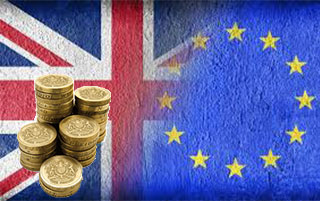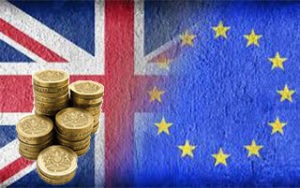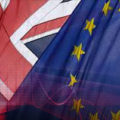The unthinkable happened. It turns out that Greece was not the first one to leave the European Union, despite having many more reasons to do so than any other member. It was the UK that delivered the first blow to a weakened union, which just a year earlier was fighting tooth and nail to keep Greece in and keep it under the harsh austerity measures that Brussels hopes will ensure the return of hundreds of billions in loans. The refugee crisis just made matters worse for Greece and other EU members, which are struggling under the burden of sluggish economies, increased expenditure to take care of the more than 1 million refugees that are now within its borders, and stubborn deflationary pressures that will not budge.
Forgive the UK then for not wanting to be part of that. Commend the average British voter for identifying the pitfalls and demanding a better future for their beloved kingdom. Everyone knows that they are the first, but they will probably not be the last. If Brexit left the markets reeling, if British citizens planted the seeds of uncertainty, is because they felt they had no choice. It may well be a mistake, but it has opened up a lot of opportunity, the same kind of opportunity that Greeks and many others still in the Union would jump at.
For instance the British Pound is going to continue to weaken against most major currencies. This is great news for struggling British industries that can now take over their local market and even export at more competitive prices than before. There is nothing bad in claiming what was once, long ago, a true part of British identity. After all it was Britain that brought the industrial revolution to the world.
There is even more opportunity ahead for the UK after Brexit. With a weaker Pound, more tourists will be able to fly in and spend their vacation in Britain. That means many potential sources of employment for the young people who are already yearning for a false illusion of being able to go elsewhere in Europe to work and learn. The message they should be getting is “stay at home, make the kingdom flourish.”
Off course it is doubtful that Britain will be able to get rid of a significant number of illegal immigrants by extricating itself from the Union. In that regard, there is no kind of road or bridge that can be burned and seal the British Isles off to the plight of those looking for a better life. It is the 21st century, there are just too many entry routes, and no country has found a good enough formula to quell the thirst of the migrants.
But if borders are meaningless to migrants of all kinds, they are also increasingly meaningless to businesses and people in general. With the advent of internet, FinTech, HighTech and everything else we now take for granted, any Briton willing to try hard enough, will find a way to stay connected with mainland Europe, just like migrants always find their way into other countries. In that sense, exiting the EU will be mostly symbolic, yet powerful nonetheless.
The markets will eventually stabilize; the world in general will learn to live with a Britain-less EU, but the latter might not live as long so as to learn how to. The Netherlands and France have already rejected ambitious EU treaties like the TCE (European Constitution), and Euro-skepticism is growing stronger in both countries and elsewhere. Greece has already toyed with its own exit from the EU, with Greeks yearning for a return to the Drachma and the independence to set their own budgets. The EU is a very ambitious project, and it is faltering with or without the UK.
Maybe supranational organizations like the EU are outdated, and Brexit is just showing it to a world that refuses to embrace the ebb and flow of globalization. Maybe this is setting the stage for another wave of globalization, a truer one based on the forces of the markets and not the will of the elites. Maybe technology will break the barriers completely and change the meaning of the word border forever. Until that happens, no one can blame the British citizens who decided to take control over their own economy and protect it, like every other nation on earth does. That is the true effect of Brexit, and it is here to stay.







